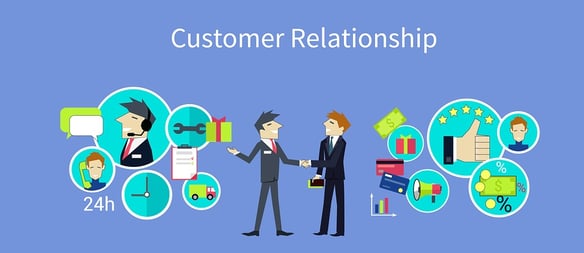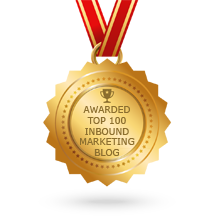
According to HubSpot’s 2016 State of Inbound report, one of the key priorities for sales in 2017 is improving the efficiency of the sales funnel. Whether you’re reviewing an existing sales process or developing one for the first time, successful outcomes depend on having access to the right technology.
CRM (Customer Relationship Management) tools, which have traditionally been reserved for larger businesses because of their high cost and reliance on in-house technical expertise, are now more available and affordable for small businesses than ever before.
The CRM industry is forecast to continue growing as more and more businesses adopt CRM solutions. However, despite being a service designed to make running your business easier, the level of functionality and customisation available on different CRM platforms makes it paradoxically harder to find a solution that’s right for your specific needs.
If you’re thinking about investing in a CRM for your small business, here are 5 things to consider that will help you make an informed decision.
Identify Your Priorities
There are countless CRMs on the market, so you’re bound to find one that suits your needs. But before you start that search, you need to define exactly what your needs are.
The key is to clearly define your sales process before you start shortlisting CRM solutions. This will help to give you clarity into the technology that you need and why you need it. Any solutions that don't deliver what you need, or maybe over deliver (there's no need paying for functionality you don't need) can quickly be removed from the list. Making it easier for you to compare suitable options for your business.
Price Isn’t Everything
When making important long term business decisions, your natural inclination may be to just focus on the purchase price. The last thing you want to do is burden your businesses with unnecessary overheads and commit to resources that you can’t afford.
To keep your CRM affordable avoid paying for features that you don’t need or use. Depending on your priorities, a basic CRM that is easy to use may be more effective than a gold-standard system with many features that never get used.
Scalability and Integration
The CRM features you need today may not necessarily be what you need 12 months from now. Your business will grow and evolve and so will your sales process. Your CRM should be flexible, to change and evolve with you.
More importantly, it needs to integrate with your existing processes and marketing automation technology. Many CRMs will sync with marketing automation platforms, which is essential in keeping your marketing and sales process aligned, reducing duplicate efforts and streamlining the marketing and sales process.
When weighing up the different CRM solutions, be sure to factor in the CRM’s scalability and ability to grow with your business while accommodating your existing technology and workflows.
Think Of It As A Whole Business Solution
The most obvious factor in selecting a CRM is the one that is most often overlooked: will your staff and colleagues actually use it? There’s no point in investing a CRM if the people tasked with using it leave it sitting on the shelf gathering e-dust.
It’s a problem commonly seen by Forbes marketing expert Ian Altman.
“The bottom line is that the most sophisticated tools are useless if your team either a) Won’t use them; or b) Spends too much time feeding the system that it takes away from their customer-facing efforts.”
When choosing a CRM involve key people across your organisation in the decision making process and get their input. Not only will this help you arrive at a vendor that matches the specific needs of your business, staff are more likely to embrace a new CRM solution if they feel as though they’ve been a part of the selection process.
In addition, make sure your CRM vendor offers training and ongoing support to help your employees embrace the new system and solve any potential teething issues.
Can It Go Mobile?
The workforce is becoming increasingly mobile. Today’s workplace is no longer the traditional office, but cafes, airport lounges, home offices and co-working spaces.
Data from Citrix revealed that 61% of workers report working outside the office at least part of the time, employees are using 3 or more devices daily for work purposes, and the number of devices being used across small and medium business increased by 72% between 2014 and 2015 alone.
When looking for new business solutions such as CRMs, it’s important to consider this monumental shift in working preferences.
Make sure your CRM has capability to support mobile platforms such Android, iOS, and Blackberry through apps and mobile dashboards. If you have a large sales and marketing team with reps in the field, making sure they have constant access to your CRM regardless of their location is essential to being successful in this new business environment.
Our Recommendation
We use and recommend the Hubspot CRM. There is a free option for small business or those just starting out. As you grow and your needs of a CRM increase you can easily upgrade to a CRM that has more functionality and sales tools. The bonus with Hubspot’s CRM is that it integrates, seamlessly with the Hubspot marketing platform so your entire team can be working from the one platform with access to closed-loop analytics.


